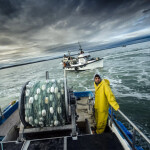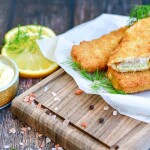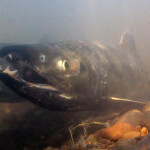U.S. federal and state government officials are still assessing the damage caused by Hurricane Matthew, which struck the east coasts of four states with brutal force this past weekend, but initial reports indicate potentially significant damage to the area’s seafood industry.
On Friday, 7 October, Florida and Georgia were pounded by the hurricane, which reached category 4 status, meaning wind speeds reached beyond 130 miles per hour. The next day, Saturday, 8 October, the hurricane hit portions of North Carolina and South Carolina, causing widespread flooding and power outages.
At least 24 deaths in the U.S. are attributed to Hurricane Matthew, and more than one million homes and businesses were still without power on Tuesday, 11 October. In addition, many suppliers and distributors in some areas of North Carolina and South Carolina are not able to operate currently because of the heavy flooding and road closures – including portions of Interstate 95, the main shipping artery running along the East Coast.
Many piers were smashed along the Brevard County, Florida, coast and thousands of dead fish washed ashore on Collier County, Florida beaches, which officials blame on Hurricane Matthew and red tide, according to the Naples News.
A longstanding St. Augustine, Florida seafood restaurant, Matanzas Innlet Restaurant, was completely destroyed by the storm.
"I would think the best thing is to bulldoze it," co-owner Joan Galasso told the Tampa Bay Times.
Aquaculture and mariculture have been particularly affected, Jerry Schill, president of the North Carolina Fisheries Association, told SeafoodSource.
“The shellfish beds are closed and it is very bad economically for shellfish industry,” Schill said.
Schill expects fishermen who use pound nets to be hit the hardest by flooding and other issues from Hurricane Matthew.
“The investment for a pound netter is significant. If these pound netters got their gear destroyed, they are out a significant amount of money [whereas] gillnets can be replaced more easily,” he said.
Seafood distribution has been significantly hampered post-hurricane, he said.
“There are a lot of road closures and [the problems] are only compounded when you are driving trucks carrying fresh seafood,” Schill said.
In South Carolina and North Carolina, the problems from Matthew are just beginning, with concerns that the worst of the flooding caused by the storm is still to come.
“Our rivers haven’t crested yet. All of the waters coming down from the north and west from Matthew haven’t hit yet,” Schill said.






